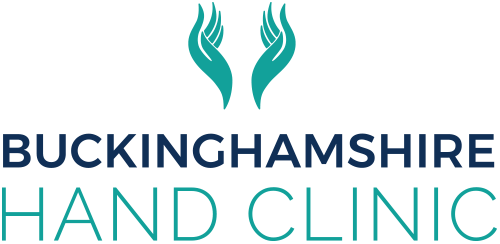Mr. Chennagiri consults at The Saxon hospital in Milton Keynes and at The Chiltern Hospital in Great Missenden. Please click here for further information or contact the appointments office at the relevant hospital for to book an appointment.
He sees NHS patients at Stoke Mandeville Hospital, Wycombe Hospital and at The Saxon Clinic.
Should I undergo surgery?
A majority of the disorders affecting the hand, wrist and elbow are often treated non-operatively in their early stages. Surgery is usually considered when other measures fail to relieve symptoms.
No surgical procedure is risk-free. However, risks are minimised when surgery is undertaken after careful pre-operative planning and discussion, with meticulous surgical technique and is followed by appropriate rehabilitation. The chances of successful treatment are enhanced by teamwork involving the surgeon, the hand therapist and the patient.
Prior to embarking upon surgery one should be clear about the following:
1. What are the risks of having an operation?
2. What are the alternatives to surgery and what will happen if the operation is not done?
3. What is the operation aiming to achieve?
4. What is the recovery period and what does it involve?
Common risks of surgery:
Infection: Infection is very rare. Antibiotics are not given routinely for soft-tissue surgery but are very effective in the treatment of soft-tissue infections.
Painful scar: it is not uncommon for scars in the hand to be painful, particularly due to their location. Scar discomfort usually settles with simple massage with a moisturising cream within a week or two but occasionally can linger on for a longer time. Hand therapy is very effective for persistent scar tenderness.
Nerve, tendon and blood vessel injury: Surgical procedures on the hand are performed under magnification by using surgical loupes. The risk of permanent injury to vital structures is extremely small. There is often temporary impairment of nerve function which recovers spontaneously. Some procedures like revision surgery for any disorder or surgery for Dupuytren’s contracture carry a slightly higher risk in comparison.
Stiffness: Stiffness is usually temporary and settles down with exercises. Prolonged stiffness is rare.
Complex Regional Pain Syndrome: It is a rare condition characterised by pain, swelling and stiffness in the affected hand. Prolonged hand therapy is needed to aid recovery. Strict elevation and active finger movements soon after surgery help to avoid this problem. Incomplete relief of symptoms: If surgery is undertaken at an advanced stage of the disease, relief of symptoms may improve but not resolve completely. In some situations, the aim of surgery would be to reduce the risk of further progression of symptoms and any improvement is a bonus.
Recurrence of the condition: Some conditions like Dupuytren’s contracture cannot be cured and surgery is undertaken to optimise the function of the hand. A ganglion over the wrist also has an inherently significant recurrence rate despite surgery. There may be other risks specific to the operation you are undergoing. You should discuss it with your surgeon.
